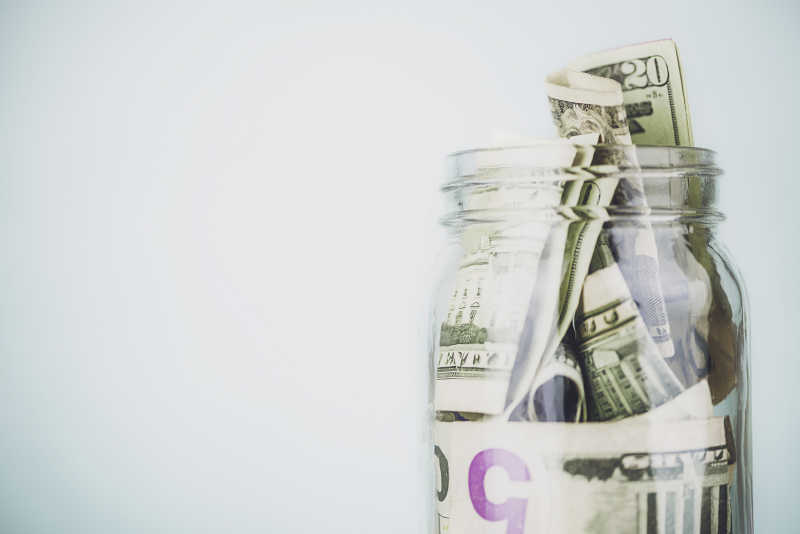What Will Happen to My Possessions if I File for Bankruptcy?
Dec. 10, 2020
The year 2020 has brought with it many unsettling changes amid the threat of a global pandemic. In addition to health scares, many people have been forced out of work and a number of small businesses have been threatened with failure because of government shutdowns. Debts are piling up nationwide, and many people have been forced to consider filing for bankruptcy. No statistics for the year are yet available in Virginia, but 2019 saw a slight uptick with more than 22,000 personal bankruptcy filings.
Though bankruptcy proceedings can help clear away debt and give you a fresh start, many individuals in Virginia and elsewhere are worried that they’ll have to forfeit all of their possessions. Rest assured, both Chapter 13 and Chapter 7 of the bankruptcy code afford various exemptions for the property you hold, including cars and houses.
If you’re in the Falls Church or Alexandria areas of Virginia, or nearby in Fairfax or Arlington, Vivona Pandurangi, PLC, and the firm’s experienced attorneys are here to discuss your financial situation with you, review your credit, and present you with the best available debt relief options that you have available.
How Chapter 13 Bankruptcy Works
Chapter 13 bankruptcy allows you to rearrange your debts into a workable monthly payment that is designed to help you become debt-free in three to five years’ time. Oftentimes, the total debt obligation will be reduced in the bargain. The length of the plan depends on your debt load, your income, and your current living expenses.
Under Chapter 13 bankruptcy, exemptions can be applied to certain assets and property you hold. For example, a car you own may be exempt up to a certain value. If you wish to keep the car, you just add payment of the nonexempt amount to your overall monthly repayment schedule. Likewise, if your home has a nonexempt value, that can be factored into your monthly payment as well.
How Chapter 7 Bankruptcy Works
Chapter 7 bankruptcy wipes out your debt, but in the process, the court may sell off any non-exempt property you own. Chapter 7 is often referred to as the liquidation plan, so it may sound scary at first, but this is where exemptions factor in.
Each state stipulates which type of property is exempt and what isn’t – usually with cash value limits. Generally, your home, car, any home furnishings, clothing, retirement accounts, and the tools of your trade can all be listed as either partial or fully exempt assets.
Certain debts, however, cannot be wiped out, including spousal support (alimony), child support, fraudulent debts, certain taxes, student loans, and certain items charged.
Federal vs State Exemptions
Some states allow filers to choose between federal bankruptcy code exemptions and state exemptions (but not both simultaneously). Virginia stipulates that its code must be used, though it allows for certain federal exemptions to apply.
Virginia updated its code of exemptions in July 2020. Code 34-4, called the Homestead Exemption, allows for the filer to exempt $5,000 for any asset or set of assets of his or her choosing. The exemption increases by $500 for each dependent under 18 years of age. The exemption increases to $10,000 if the filer is 65 or older, or a disabled veteran. The updated code also allows a $25,000 exemption for one’s principal residence if the property is held in the filer’s name.
In Virginia, a married couple each has a right to these exemptions — $5,000 per person — and in a process known as “doubling” can increase the principal residence exemption to $50,000.
While there are cash value limits placed on the various items in one’s possession, such as $1,000 for clothing, assets that are hard to sell and may result in no significant cash recovery will generally be ignored. In other words, items with limited or no resale value, including home furnishings, will generally be safe.
Saving Nonexempt Assets
Through Trade or Buyback
If your non-exempt property is slated for liquidation and you wish to hold onto it, you have a couple of options. One is to offer to repurchase the asset at its nonexempt value, though for most people in Chapter 7, this may be difficult financially.
The other way is to barter, or trade, an exempt asset for the nonexempt one you wish to keep. Here, the trustee will have to decide if the exempt item you’re offering is worth the trouble of seizing, holding and selling, and if it offers a similar cash value in return.
Seek the Help of Experienced
Bankruptcy Attorneys Today!
Which course is best for you, Chapter 13 or Chapter 7 bankruptcy? This, of course, depends largely on your unique circumstances, but in either case, it is imperative that you seek out qualified and experienced bankruptcy attorneys to help guide you through the process step by step.
If you live in Falls Church or Alexandria, Virginia, contact our firm, Vivona Pandurangi, PLC, immediately to schedule a free consultation. We also offer our services to clients in Arlington, Fairfax, Manassas, Prince William, and Loudoun, Virginia.
